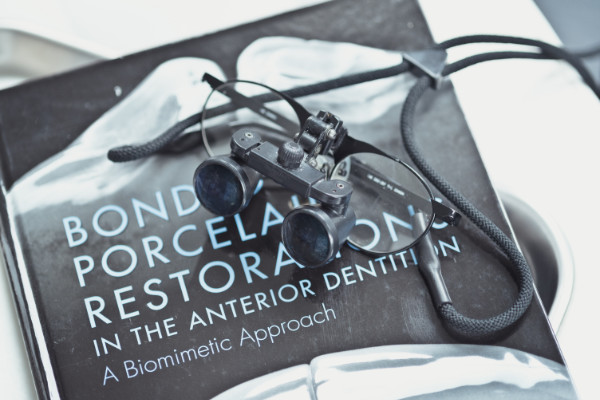



Maintaining good oral health is a crucial aspect of overall well-being, and ensuring appropriate nutrition is vital in preserving strong and healthy teeth and gums. While brushing and flossing are necessary for oral hygiene, a balanced diet can supply the essential nutrients necessary to promote dental strength and vitality. This article will delve into the correlation between nutrition and oral health, outlining which foods are most beneficial for maintaining strong teeth in order to minimize unexpected trips to the dentist.
Our oral health is greatly influenced by the diet we consume. Essential components for the maintenance of strong teeth and healthy gums include nutrients like calcium, vitamin D, and phosphorus. The presence of calcium is indispensable for the promotion of robust dental and skeletal structures, whereas vitamin D facilitates the assimilation of calcium. Furthermore, phosphorus plays a vital role in fostering and upholding sound dental and skeletal health.
Consuming food and beverages abundant in sugar and carbohydrates may result in dental erosion and dental caries. Sugary consumables furnish a nourishment outlet for the bacteria responsible for tooth decay. Upon consumption of sugar and carbohydrates, oral bacteria generate acid that can cause tooth decay by eroding the enamel.
Furthermore, a dietary regimen that lacks crucial nutrients can result in compromised teeth and gums, rendering them more vulnerable to periodontal disease and dental caries. Inadequate nourishment can also impair the immune system, making it more challenging for the body to combat infections, including those impacting oral health.
Consuming a well-rounded diet that encompasses a diverse range of foods can supply the essential nutrients required to maintain optimal teeth and gum health. Below are a few examples of the top food choices beneficial for oral well-being:
In conjunction with these food choices, adequate consumption of water is equally crucial in maintaining oral and periodontal well-being. Water serves to flush out residual food particles and harmful bacteria from the mouth, thereby diminishing the chances of tooth decay and periodontal ailments.
Although numerous food items can enhance oral health, there are certain foods that should be consumed in moderation or avoided altogether due to their potential harm to dental well-being. Consider the following list of detrimental foods:
In addition to steering clear of these food items, it is crucial to uphold proper oral care and a nutritious diet as well. This includes consistently brushing and flossing, as well as scheduling routine checkups and cleanings with the dentist.
There exist numerous supplements and vitamins that play a crucial role in enhancing oral health by supplying essential nutrients to fortify teeth and gums, as well as bolster the immune system. Below, we present a compilation of the ten most advantageous supplements and vitamins known to contribute to oral well-being.
Calcium holds significant importance in preserving robust dental and skeletal structures. It assumes a vital function in the genesis and progression of teeth, while inadequacy in calcium can result in compromised tooth enamel and an increased vulnerability to dental caries. Calcium also plays a crucial role in upholding the density and robustness of bones, ultimately aiding in the prevention of tooth loss.
Calcium is present in dairy items such as milk, cheese, and yogurt, along with leafy greens, nuts, and fortified foods. Additionally, individuals who do not obtain sufficient calcium through their diet can consider taking a calcium supplement as a beneficial alternative.
Vitamin D is crucial for the assimilation of calcium within the body, thereby serving as a vital component in promoting healthy teeth and bones. Additionally, it contributes to fortifying the immune system and diminishing bodily inflammation, thus serving a preventive role against gum disease.
Fatty fish, eggs, and fortified foods like milk and orange juice are dietary sources where Vitamin D is present. Additionally, the body can generate vitamin D through exposure to sunlight. Nonetheless, a significant number of individuals fail to obtain sufficient amounts of vitamin D from their dietary intake or sun exposure, thus making the consumption of a vitamin D supplement advantageous.
Vitamin C, an antioxidant, is essential for the preservation of gum tissue vitality. It aids in strengthening the immune system and minimizing bodily inflammation, thereby acting as a preventive measure against periodontal disease. Insufficient levels of vitamin C can result in periodontal ailments, gum bleeding, teeth that are prone to movement, and potentially even the loss of teeth.
Citrus fruits, berries, and leafy green vegetables are rich sources of Vitamin C. In cases where the dietary intake of Vitamin C is insufficient, it can be advantageous to supplement with Vitamin C.
Coenzyme Q10 is an inherent antioxidant that is synthesized by the body and plays a crucial role in cellular growth and upkeep. Furthermore, it contributes to the reduction of inflammation and fortification of the immune system. Research has demonstrated that Coenzyme Q10 can be beneficial in diminishing gum disease symptoms, such as gum bleeding and swelling.
Fatty fish, organ meats, and whole grains are rich sources of coenzyme Q10. Nevertheless, obtaining an adequate amount of coenzyme Q10 solely through dietary intake can be challenging, making supplementation advantageous.
Omega-3 fatty acids are necessary fats that have a significant impact on diminishing inflammation within the body. Additionally, they provide support to the immune system and contribute to the prevention of gum disease. Research has indicated that the incorporation of omega-3 fatty acids into one’s diet can aid in diminishing the symptoms associated with gum disease, such as gum bleeding and inflammation of oral tissues.
Sources of omega-3 fatty acids include fatty fish like salmon and tuna, as well as nuts and seeds. Supplementation with omega-3s is also advantageous for individuals who have insufficient dietary intake of these essential fats.
Probiotics, which consist of live bacteria and yeasts, possess not only advantageous properties for gut health but are also crucial in upholding oral well-being. By diminishing the proliferation of detrimental bacteria that contribute to gum disease, tooth decay, and unpleasant breath, oral probiotics can effectively assist in maintaining oral hygiene. Additionally, they have the potential to assist in preserving a harmonious bacterial equilibrium within the oral cavity and mitigating inflammation.
Studies have indicated that the consumption of probiotics may be beneficial in diminishing the likelihood of gum disease and other oral infections. Two specific types of bacteria, namely Lactobacillus reuteri and Streptococcus salivarius, have demonstrated significant efficacy in enhancing oral well-being.
Fermented foods such as yogurt, kefir, and sauerkraut are rich sources of probiotics. Nevertheless, individuals who do not obtain sufficient probiotics through their diet can also derive benefits from taking probiotic supplements.
Zinc, a mineral of utmost importance, is instrumental in upholding dental and gum health. It aids in bolstering the immune system, diminishing inflammation, and expediting the healing process of wounds. Zinc additionally contributes to the preservation of balanced bacterial populations within the oral cavity, lessening the likelihood of gum disease and unpleasant breath odor.
Studies have indicated that the consumption of a zinc supplement can diminish the indications of gum disease and support dental well-being. Zinc can be obtained from various food sources including oysters, beef, and pumpkin seeds, as well as through the use of supplements.
Magnesium, a mineral of utmost importance, is vital for preserving proper dental and skeletal health. Its function in facilitating the assimilation of calcium within the body makes it an indispensable element for sustaining robust teeth and bones. In addition, magnesium aids in bolstering the immune system and mitigating inflammation within the body.
Studies have indicated that incorporating a magnesium supplement into one’s routine can lower the likelihood of tooth decay and support overall dental health. Magnesium can be sourced from various foods like almonds, spinach, and black beans, or it can be consumed as a supplement.
Vitamin K2 plays a crucial role in promoting the wellbeing of both bones and dental health. Its function involves regulating the distribution of calcium within the body, guiding it towards the areas where it is required, such as the bones and teeth. In addition, Vitamin K2 aids in diminishing inflammation and bolstering the immune system.
Studies have indicated that the consumption of a vitamin K2 supplement can enhance bone density and decrease the likelihood of dental caries. Vitamin K2 can be obtained from sources like fermented foods, grass-fed butter, and egg yolks, as well as in the form of dietary supplements.
Vitamin A, a vitamin that dissolves in fat, is indispensable for preserving proper dental hygiene. It fulfills a critical function in the formation and preservation of tooth enamel, safeguarding teeth against decay and harm. Vitamin A additionally aids the immune system and contributes to the reduction of inflammation within the body, which may serve as a preventive measure against tooth decay and gum disease. Studies have indicated that inadequate vitamin A levels can result in weakened tooth enamel and an elevated susceptibility to tooth decay and gum disease. Incorporating vitamin A-rich foods like sweet potatoes, carrots, and leafy green vegetables into one’s diet, or considering the option of a vitamin A supplement, can contribute to advancing oral health and sustaining strong teeth and healthy gums.
Maintaining optimal oral health greatly depends on consuming a well-balanced diet that encompasses a range of foods. This dietary approach ensures the intake of vital nutrients required for promoting robust teeth and bones. Simultaneously, minimizing the consumption of sugary, starchy, and acidic foods can effectively diminish the likelihood of tooth decay and periodontal ailments. Furthermore, ensuring an ample intake of water and adhering to proper oral hygiene practices can contribute to the preservation of oral well-being.
It should be emphasized that oral health can be compromised by nutritional deficiencies, similar to their impact on general physical health. Inadequate nutrition can undermine the strength of teeth and gums, rendering them more vulnerable to ailments and infections. Consuming a well-rounded and nutritionally balanced meal that supplies the essential vitamins and minerals is crucial in upholding oral health and warding off oral ailments.
A well-balanced diet comprising of dairy products, leafy greens, fruits and vegetables, nuts and seeds, and lean proteins is crucial for preserving optimal oral health. It supplies the necessary nutrients to promote strong teeth and bones. By refraining from consuming foods high in sugar, starch, and acidity, as well as adopting proper dental care habits, individuals can lower the likelihood of experiencing tooth decay and periodontal disease. By selecting nutritious food options and prioritizing oral hygiene, we can preserve our dental health and showcase attractive smiles for an extended duration.
Supplements and vitamins have a significant impact on the enhancement of oral health as they supply vital nutrients that bolster sturdy teeth and gums while diminishing inflammation within the body. Key supplements and vitamins such as calcium, vitamin D, vitamin C, coenzyme Q10, and omega-3 fatty acids play a critical role in optimizing oral well-being. Nevertheless, prior to consuming any supplements, it is crucial to consult with a healthcare professional, as certain supplements may potentially interact with medications or produce adverse reactions.




DeFabio Dental Design is a high-end dental design studio specializing in General Dentistry, Cosmetic Dentistry, Prosthodontics and Dental implants. We are a father/daughter team of dentists that believe in treating the whole person, not just your teeth.